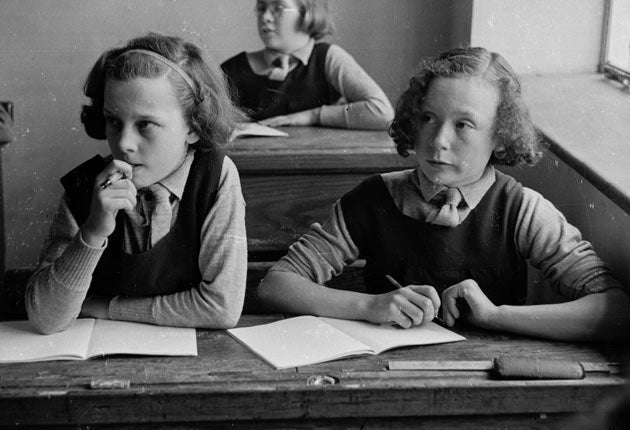Save our state schools: Fair access to education is under threat from a new Bill

Your support helps us to tell the story
From reproductive rights to climate change to Big Tech, The Independent is on the ground when the story is developing. Whether it's investigating the financials of Elon Musk's pro-Trump PAC or producing our latest documentary, 'The A Word', which shines a light on the American women fighting for reproductive rights, we know how important it is to parse out the facts from the messaging.
At such a critical moment in US history, we need reporters on the ground. Your donation allows us to keep sending journalists to speak to both sides of the story.
The Independent is trusted by Americans across the entire political spectrum. And unlike many other quality news outlets, we choose not to lock Americans out of our reporting and analysis with paywalls. We believe quality journalism should be available to everyone, paid for by those who can afford it.
Your support makes all the difference.The Government's policy on education – spelt out in legislation now going through Parliament – is far from what many people would want a schools system to be. It prompts worries over values such as fairness, social justice and providing access for all. There are huge concerns about the lack of democracy in this Education Bill (which is likely to become law by the end of the year).
CASE, the Campaign for the Advancement of State Education, has identified many areas of concern – for instance, on academies.
Decisions are being taken by governing bodies to change a school's status without any full and proper consultation with parents, staff and young people.
Academies immediately come under the control of the Department for Education through the funding agreement but are also "autonomous". Most governing bodies are making the decision to become academies on the grounds of getting extra funding, but this is probably only for the first year and the money will have to pay for all the services formerly provided by the local authority.
Cuts in local authority funding have led to massive reductions in staff available to support schools. In addition, academies will be accountable only to the DfE, and parents who have problems will have to go there for their issues to be addressed.
As more schools become their own admission authorities (as happens with academies) and the admissions code is simplified, there will be more and more selection.
The Education Bill is also removing the requirement for admission forums and the power of schools adjudicators to rectify anomolies as the result of parents' complaints.
With more schools determining their own admissions, local authorities will have greater difficulty in placing children – including those with special needs or who are disabled – into the school they want.
With "free schools" (run by parents, teachers and religious groups), which do not have to have qualified teachers, or appropriate space to play outside – any building will do – the loss of requirement to comply with national teacher pay and conditions or the national curriclum means that the rights of both parents and students will be ignored.
The abolition of five quangos is proposed in the Bill, with no plans to replace them except to take their work into the DfE. As a result, there are huge questions about its ability to cope and the loss of expertise as staff leave the quangos.
The Bill also removes the right of students' parents to appeal against exclusion – there will only be a "review". No one would suggest that a member of staff would not be able to appeal against a dismissal.
In addition, schools will also not have to give 24 hours' notice of detention and teachers will be able to search students and remove items such as mobile phones and delete their contents.
These are huge infringements on the rights of young people and it is to be hoped that they are not finally accepted. However, the Bill has completed its committee stage in the House of Commons and there have been no amendments.
As the system becomes less and less fair, it is the students who will lose out, especially the most vulnerable – about whom the Government says it has the most concern.
Melian Mansfield chairs the Campaign for the Advancement of State Education
Join our commenting forum
Join thought-provoking conversations, follow other Independent readers and see their replies
Comments